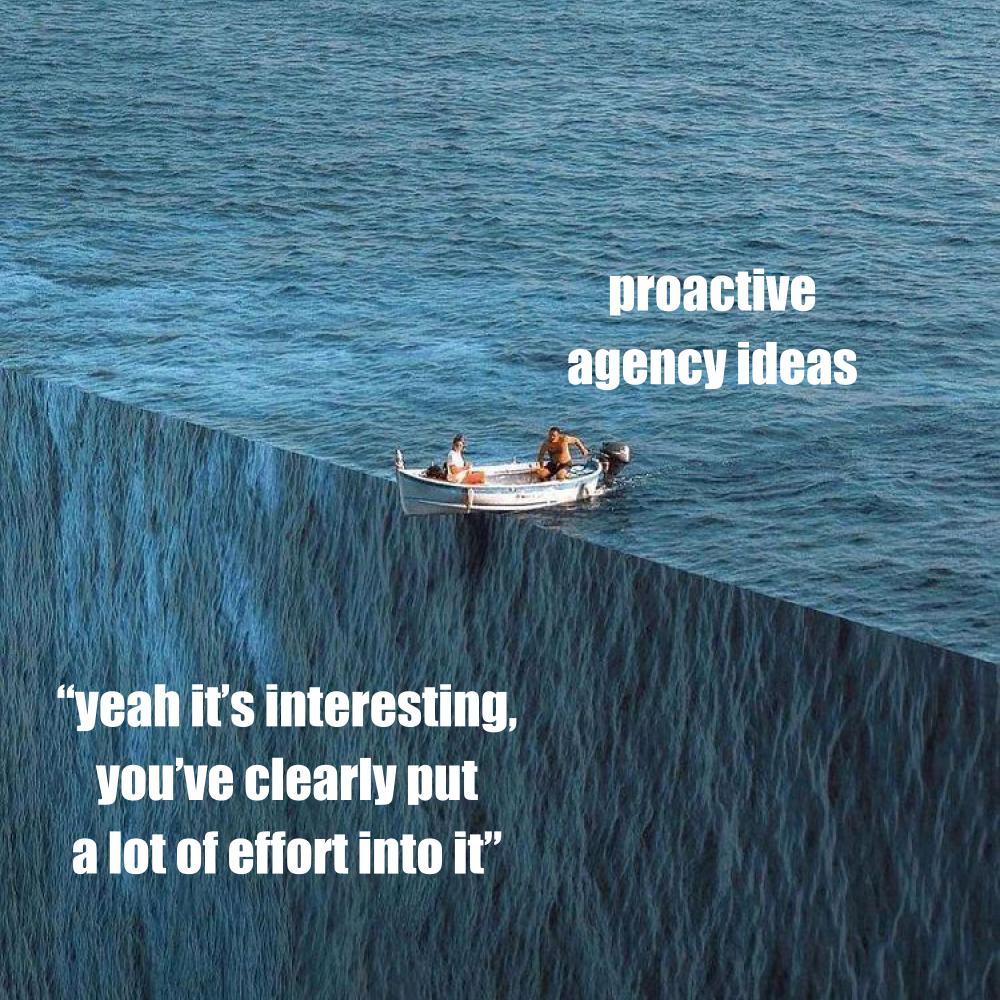With goodvertling, license was given to tell anything, anyhow
L’interview des auteurs du livre Mange ta soupe !
Does purpose cheerfully pay in utopia?In recent years, and even more since the pandemic, the consumer has been rocked by "good" by companies and brands.Goodvertling would have evangelized the spirits, making purpose the new mantra of the advertising market.Better, international companies with a "brand purpose" would be the most efficient.Would Purpose become the alpha and the omega of the sustainable growth of brands?
Authors and translator - for the first - from the book (released on September 22)), eat your soup !, "The new compass of the digital era marketer" bringing together the contributions of 20 international experts (Byron Sharp, Bob Hoffman, AmyWilson, Les Binet, Mark Ritson, etc..)), Vincent Balusseau, former worker ankle of the advertising industry today Marketing professor in Audencia Business School, and Wiemer Snijders, partner in the Marketing Consulting Company, demystifies this advertising approach
In recent years, under the leadership of consumers, and even more today in a post-pandemic world, the word purposes is on everyone's lips in advertisers and in agency.More than a suitcase in which we would try to lock it up, what is the purposes?
Vincent Balusseau: It would probably be necessary to distinguish the simple "Brand-Purpous" (the raison d'être of a brand)) from what is sometimes called "Purpose-Drive" business ".A "purpose-driver" company gives itself other objectives than the only pursuit of profit and resolutely wants to work for the common good, both environmentally and socially.A brand can have a purpose (a "why")) which is not directly associated with these themes.But let's stay simple, especially since we now have a whole series of concepts with fairly vague contours (vision, mission, promise, etc..)): Continuing a "purposes" amounts to wanting to contribute to the common good (and in particular to the safeguard of our ecosystems)), while seeking to generate (sustainably)) of profit.
Wiemer Snijders: And precisely, to use Peter Drucker's words, the first reason for the vast majority of companies is to earn money.And marketing plays a central role in it.This implies understanding consumers (their needs and their purchasing behaviors)), and this is what allows marketers to pay their bills, their credits and their vacation.L'Oréal must sell shampoo, Renault of cars and Crédit Agricole placements.But more and more experts (many of which are marketers, by the way)) tell us that the raison d'être of companies must exceed the only search for profit, and that it is also a question of acting in a responsible manner, in line with the principles of CSR.Marketers, in particular, consider that this type of commitment, once brought to the attention of consumers, will have an important effect on their purchasing decisions.However, this hypothesis does not hold, or not really.
Obviously consumers declare that they wish for companies that they act in a responsible and virtuous manner!But when the time comes to buy, we unfortunately know that these considerations play only a minor role in the purchasing decisions of most consumers.If a brand wishes to increase its market share, it must ensure that it is present in mind of the greatest number of consumers, in as many purchasing situations.And the vast majority of people will think of much more basic things than purposes, once in store, or on the internet.They are looking for a reliable car, a shampoo that gives volume to the hair or an attractive rate loan.Associating your brand with these entry points into the category, with the greatest number, constitutes the essential battle for marketers who are still, what I know, judged on commercial results.We obviously all want companies to behave better, even have a positive impact (this famous purpose)).But people still buy a lot, a lot, for very different reasons.
Isn't Brand Purpose not an impact?
V.B.: Inevitably, since many resources are now invested on the subject, and in particular in goodvertling.But do we talk about marketing efficiency (and impact business)), or a positive impact on the common good?
Both !But above all the impact on the common good, marketing efficiency ranging almost from self for businesses ...
V.B.: So let's start with the business impact, which still remains for the vast majority of companies the nerve of war, as Wiemer recalled.We have been served for the decades that we serve the causal link between such or such a "good" practical (for example, over-investment in human resources and in the enhancement of talents, or an obsession around the causal."Customer-centricity")) and the performance (stock market)) of the company.The purposes (and the CSR - Corporate Social Responsibility)) obviously did not escape the rule: we were explained very early, as Richard Shotton evokes in Manger Ta Soup !, That the truly "committed" companies were more efficient.
We know, however, that these studies are terribly biased, and that they update correlations rather than causalities.And they are even mistaken about the meaning of this alleged causality: the most efficient companies are actually also those which are most likely to implement all the good practices mentioned at the moment (from Customer-Centricity to the CSR, passing through the next managerial innovation)).And other very serious academic works clearly show that, taken in isolation, these good practices (such as, let's say, excellence in HR)) explain as best as possible that a small part of the variance in business performancestudied.The CSR, in itself, cannot explain a higher performance, no more than another practice besides.It is a set of good practices, often linked to each other, which explain a higher performance, released by companies which, to schematize, do "all a little better" than the others.

W.S.: If the objective is to impact behavior and therefore sales, then marketers have much greater projects than purposes.Is the brand known?Does it come immediately (and almost automatically)) to the minds of people who buy in the category?From an advertising point of view, this means that it is necessary to be able to touch, ideally, all buyers of the category, communicate on relevant attributes or benefits for the greatest number, ensure that advertising is easily attributed to themark, and increase the probability that the latter will be immediately recognized in physical or virtual linear.
We detail in the first chapter of eating your soup!major laws (large empirical regularities)) which govern purchasing behavior, whatever the categories studied.Marketers do not always realize how many of their sales come from individuals who buy their brand very often.We explain in the chapter that in consumption, over a period of 5 years, it is completely normal that almost 40 % of sales of a given brand are the result of consumers who only bought ittime.Once in 5 years!If I take up the example of L'Oréal: the vast majority of buyers of L'Oréal Paris will only have bought the brand once in the past year, and a large part of them will not buy tonew the following year.This has enormous implications in terms of advertising, and also purposes ... These small, or very small consumers never or almost think of L’Oréal Paris.And they represent millions of individuals on the French market.The priority is good to touch these people with a message directly linked to the main entry points into the category (of the type "will give volume to my hair")), and which will recall the color of the pack.Especially since most of these people will not give more than two seconds of attention to the advertising of the brand in question.
V.B.: If, and it is a great "if", goodvertling allows more creative advertising, likely to arouse a little more attention from the greatest number and to trigger emotions, to ultimately make the brands more"Popular" (the "Fame" of which Peter Field speaks in our work)), so we can imagine that he has a positive impact from a marketing point of view.But I am not sure that this is much the case.
And so the second type of impact, on the common good this time?
V.B.: Of course we must salute all the initiatives that go in the right direction, and there are many.Many companies are sincerely animated by ethical considerations, and actually seek to reduce their negative imprint on the environment or even have a positive impact on the world.
Now when we are more closely interested in goodvertling, we are disillusioned a little.The advertising industry explains, rightly, that advertising has an important role to play in ecological transition, by offering new imagination of consumption to French households.If all brands start to speak sustainability or even frugality, we can indeed imagine that this will ultimately have an impact on mentalities and behaviors.Goodvertling could therefore establish itself as a powerful lever at the service of the planet, and the common good.But we are waiting at least advertisers who seem to be placed on the field of ethics, and more broadly responsibility, a perfectly transparent and honest speech.But it is almost the opposite which we are witnessing.Let's say it without detour: goodvertling has done to advertising communication what Trump did to political communication.License was given to tell anything, anyhow, under the guise of "good".
As the 10th “advertising and environment” assessment of the ARPP and ADEME pointed out, brought to our attention by Mathieu Jahnich, consultant-researcher specializing in these themes, half of the advertising videos broadcast on Youtube and linked to the themeSustainable development did not comply with ethical rules!And as everyone can see, the tinted publications of Greenwashing abound on social media.And all these TV, press, mind -boggling advertisements which, more or less, explain to us that "if you want to do good, you have to buy more at home"!Do you have to lift a small spoon to save the planet?Really ?!We reward a Grand Prix Adidas Adidas Pinned by the Jury of Advertising Ethics (following the vigilance of the same Mathieu Jahnich))?!
Advertising has always been nourished by hyperbolas, but here we fall from his chair.We smoke consumers whose apathy and cynicism we will ultimately feed.And advertising will have no second chance, no possibility to say one day: "This time believe us, it's really true".
And beyond the cynicism of certain advertisers, it is a whole posture of the advertising industry that seems difficult to me.How can we, at the same time, affirm that advertising has a key role to play in ecological transition and fire any wood to unravel the climate law?How can we seriously evoke the urgency of the transition and defend beak and nail "self-regulation" of the actors, self-regulation whose obvious limits are known ...?
So no, both from a point of view of the marketing impact as that on the common good, we are not there, and not at all the same.Obviously, sincere companies and advertisements show the way.But it is too often the tree hiding the forest.And I am not even talking about all these brands which pass their initiatives purposed to the screech of their PR potential, or which, with targeted initiatives, manage to divert attention from what is happening in their rear cookers ... andThen here, special mention to these American Mega-Corporations which cross the latest limits of corporate cynicism, funding the lobbies responsible for fighting the climate law pushed by the Biden administration, while publicly declaring that they want to fight climate change ...
Has Purpose has become an obligatory passage, especially for consumers looking for meaning?
W.S.: As I said earlier, most people, and I say most, the vast majority, have only basic and trivial things when they buy marks.Except exceptions, people spend a little time shopping, and buying in this or that category.And that is why it is so important to make their task easier and remove any type of friction or irritating in the offline or online purchasing routes, to allow people to go fast.People usually have a lot to do, or more interesting things to do (such as getting children from school, going out the dog, watching their series of the moment, etc..)).And they sometimes think of the state of the planet, inequalities, the sufferings of certain strata of the population, yes.But when you start buying things, it's usually a whole new matter.
While marketers tend to think that the brands they have the responsibility play an important role in people's lives, it is quite rarely the case, and people think very, very little about the brands they buy.One of the roles of branding is precisely to facilitate the life and decisions of consumers: "Ah yes, it is the Machin brand that I know and which suits me".Branding creates mental shortcuts, heuristics, which allow us to buy almost in automatic piloting.The purpose is based on the opposite principle: he hypothesizes that these masses of small buyers will reflect on the brand and the company behind it, its contribution to the common good and the initiatives it leadsmatter.The vast majority of people do not behave like that (except people very involved on these subjects, and except marketers, perhaps)).
Que le lecteur fasse un petit test tout simple : qu’il demande à ses amis non marketeurs de jeter un œil aux vêtements qu’ils portent, à leur carte(s)) bancaire(s)) ou d’ouvrir leurs frigos : que sont-ils capables de vous dire sur le purpose des marques qui peuplent leur quotidien ? De leurs « bonnes actions » et autres engagements ? Probablement rien.And besides: is that really counting for them?
V.B.: I also fear that the profession did not start to fantasize the French consumer, even that it did not fall into a form of collective drunkenness around the importance that the latter would attach to purpose.We are no longer counting studies - based on declarative surveys -, committed by study companies, advice, or agencies, claiming that consumers now prioritize responsible consumption.Attention.On the faith of these studies, Jadot will be our next president, Amazon would have closed in France, and Netflix would have lost the majority of his subscribers there.How is it possible to forget so much that the declarations of individuals, particularly on subjects relating to responsible consumption, in no way allow to predict their effective behavior?!This is what Phil Graves explains, by the menu in our book, in the chapter entitled "Everyone Ment".Obviously people will largely declare these criteria into account, or even declare their main concerns. Qui pour dire « Je n’en ai rien à foutre de la planète » ? Mais la réalité des comportements est (malheureusement)) toute autre.
I fell the other day on a study, saying that "almost one in three French people intend to boycott the brands that did not hold their promises during the COVVI-19 crisis, and one in two French provides forfavor the marks that engage during the crisis ".Do we really think that people will remember that and do this kind of calculation once in a situation of buying?Have we lost your head?!
So it's undeniable: consumption behaviors are evolving, and that's good.But much less and much slower than we tell us everywhere.And should we mention all these stands around the world after?How could we have given so much credit to them, and believe that the pandemic would radically transform people, and their consumption behaviors?We have also been so damaged by the ears with the hyper-virtuous behavior of the Gen Z, alleged champion of responsible consumption.I would like to be explained, then, the lightning success of Shein with these same consumers, and of all the brands that this one plebiscite on a daily basis, without really, even to worry about their "impact".
The majority of these studies are simply denied by what research tells us about purchasing decision-making processes in most categories, in these consumer armies little or not involved in them.But all this makes pretty titles and pretty stories, I agree, and run the briefing machine on the side of advertisers.
In chapter 14, Richard Sotton dismantles Stengel's theory according to which "purpose-driver" companies perform better than others.However, this theory served as theory for brand activism.Is goodvertling only a "fomistry", one more offer available to agencies/consulting firms to sell more brands services?
V.B.: There is a lot to do from the point of view of marketing research, in order to see a little more clearly. Les recherches actuelles, notamment celles portant sur les effets de l’activisme de marque (où les marques se positionnent par rapport à des causes politisées et régulièrement clivantes)) mettent en avant son impact très contrasté.Knowledge in the matter is far from stabilized.But the major laws that continue to govern consumer behavior, they are much more.As it stands, I strongly doubt that goodvertling is a "game-chainger", both from a point of view of its marketing efficiency as from the point of view of its impact on the common good.
As for purposes actually, I previously mentioned the limit of studies supposed to prove the existence of a causal link between these forms of engagement and the performance of companies.Talking about fomistics is certainly excessive, but it is important to be critical in the face of studies and injunctions produced by market players, who have everything to gain us that everything changes, and all the time.And this also applies to the big names of the Council like McKinsey, which no one or almost dares to challenge the "decrees".
The objective of the book is to strengthen the critical thinking of readers, and to help them sort through the multiple priorities of the moment.We can naturally only be delighted that multiple companies take their responsibilities in the face of the immense challenges we are collectively confronted.But now, basically, what it is about: take responsibility.All this is not necessarily intended to transform into an advertising campaign, and even less in a false advertising campaign.








